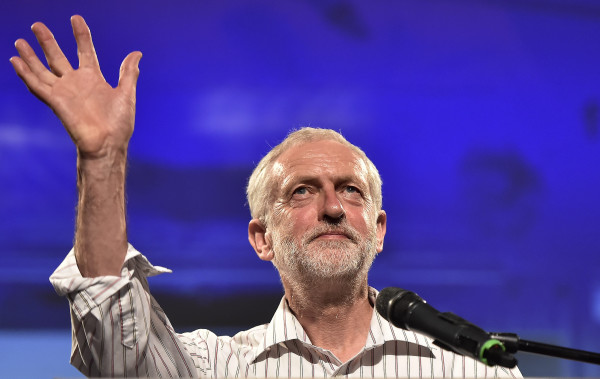

The Labour party has said employees should be given the power to make decisions about their workplace pensions.
At Labour’s annual party conference in Liverpool today (26 September), party leader Jeremy Corbyn said decisions about workplace pensions should not be made exclusively at at board level.
He said: "It is left up to boardrooms to decide what happens to people’s workplace pensions.
"Employees should have a say in what happens to their pensions and bosses need to embrace the expertise that workers could bring to the boardroom. We need to rebalance power in the workplace."
At the party's conference this week, Labour proposed forcing British companies with more than 250 staff to set up an "inclusive ownership fund" to give 10 per cent of their equity to staff.
According to Labour, approximately 10.7 million workers at larger companies would benefit from this.
Mr Corbyn also reiterated Labour's support for the triple lock on the state pension, which means the benefit is increased by the highest of inflation, wage growth or 2.5 per cent.
"We owe it to the older generation to rebuild the social security system with dignity," Mr Corbyn said.
"The Labour party ensure a triple lock on pensions and deliver a national healthcare service to give families the care they need."
The triple lock, which was introduced in the Coalition government's first Budget in 2010, has come in for increasing levels of criticism because it has proved more expensive than anticipated.
A report by the Office for Budget Responsibility said that original estimates for the cost of the triple lock were £400m in 2014 to 2015, but because of higher inflation and lower earnings it ended up costing £2.9bn.
Last week the International Monetary Fund had joined in the calls for the triple lock on the state pension to be scrapped as it could create savings to help fund the NHS.
Meanwhile former Conservative minister Lord Willetts, now executive chairman of the Resolution Foundation, said it was unfair the state pension would have increased by 19 per cent by 2020 while child benefits would have gone down by 12 per cent.
In its manifesto for last year’s snap election, the Conservative party proposed scrapping the 2.5 per cent lower limit after 2020, turning the measure into a "double lock".
But the Pensions Policy Institute conducted research which showed 700,000 more pensioners would be living in poverty by 2050 if the pensions triple lock is scrapped.
It said low earners would be forced to put an extra £540 a year into their pension to ensure a comfortable retirement if the the triple lock was scrapped.
Tom Selby, senior analyst at AJ Bell, said: "It is hard to put a price on the state pension triple lock because its value depends on the performance of the wider economy, and specifically earnings and prices levels.
"Aside from the billions of pounds extra the triple lock could cost the Exchequer, it is hard politically to justify increasing the retirement incomes of baby boomers at a faster rate than younger generations especially when it is younger generations’ taxes that ultimately fund the guarantee.
"There is also a legitimate question about whether increasing the state pension at random intervals, which is essentially what the triple-lock does, is really sensible policy making. If Jeremy Corbyn thinks the state pension level is too low, surely it would make more sense to simply raise the payment to a level he thinks is fair, and then peg that amount to earnings or prices, or both."
rosie.quigley@ft.com



